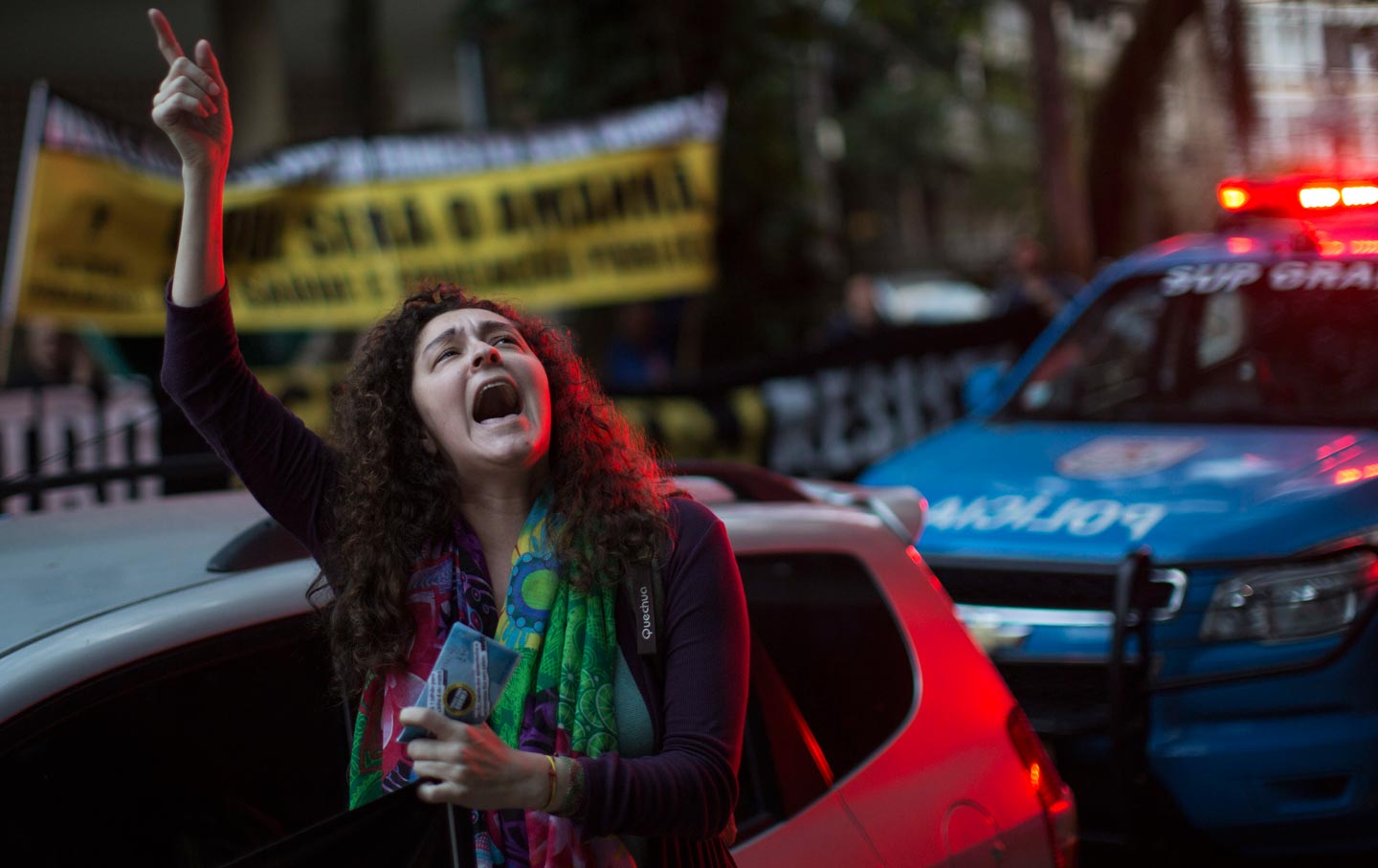Teachers and Students Occupy Schools in the Shadow of Olympic Rio
Organizing to reform teachers’ working conditions as well as standardized testing has been met with brutal police violence.

In the shadows of both the 2016 Rio Olympics and a political impeachment/coup that rocked the world, a struggle took place in Brazil with more resonance than either of these events, if people only knew that it happened. Just beyond the city’s northern borders, a five-month strike by public-school teachers ended only last month, just in time for the games to begin.
Of 166,000 teachers, 70 percent went out, confronting violent police repression in an effort to win a raise and confront unendurable working conditions that produce student-teacher ratios of 50-1.
What made this strike so remarkable was that it did not end on a picket line. Dozens of schools were occupied by teachers and students and for months, where they staged their own classes while union leaders negotiated their futures and the police knocked down their doors. I spoke to three teachers in Rio: Marilia El-Kaddoum Trajtenberg, Raphael Mota Fernandes, and Eduardo Moraes, two of whom were a part of these occupations, all involved with the union.
Their story is not only a labor battle of note. It demonstrates the ways that funding the Olympics starved parts of Rio and provoked unforeseen consequences.
These educators are clear that what made these strikes special were the occupations. Raphael said, “In total, there were 81 schools that were occupied in the state of Rio. The idea started in São Paulo, but we made it ours. There were a lot of activities that we organized. We held debates about current issues, about racism, politics. We opened the libraries, held cultural events, and the schools became what they were supposed to be; cultural centers for the community. For students in their final year, we held classes on the Vestibular, a test that is similar to the SAT, but worse: Your entire university application process rests on this test.”
As these occupations continued in schools starved of funds, the priorities of the multibillion-dollar Olympics were never far from their minds.
“Both within the occupied schools and within the teacher’s strike, we were very cognizant of it all. It was really…disturbing to see billions spent when schools don’t have proper sports equipment, don’t have materials, don’t have hot food for students. Instead, they are just investing in this big party that will be gone in a month.”
The police violence against the teachers was very intense. Eduardo told Teachers and Students Occupy Schools in the Shadow of Olympic Rio | The Nation:
